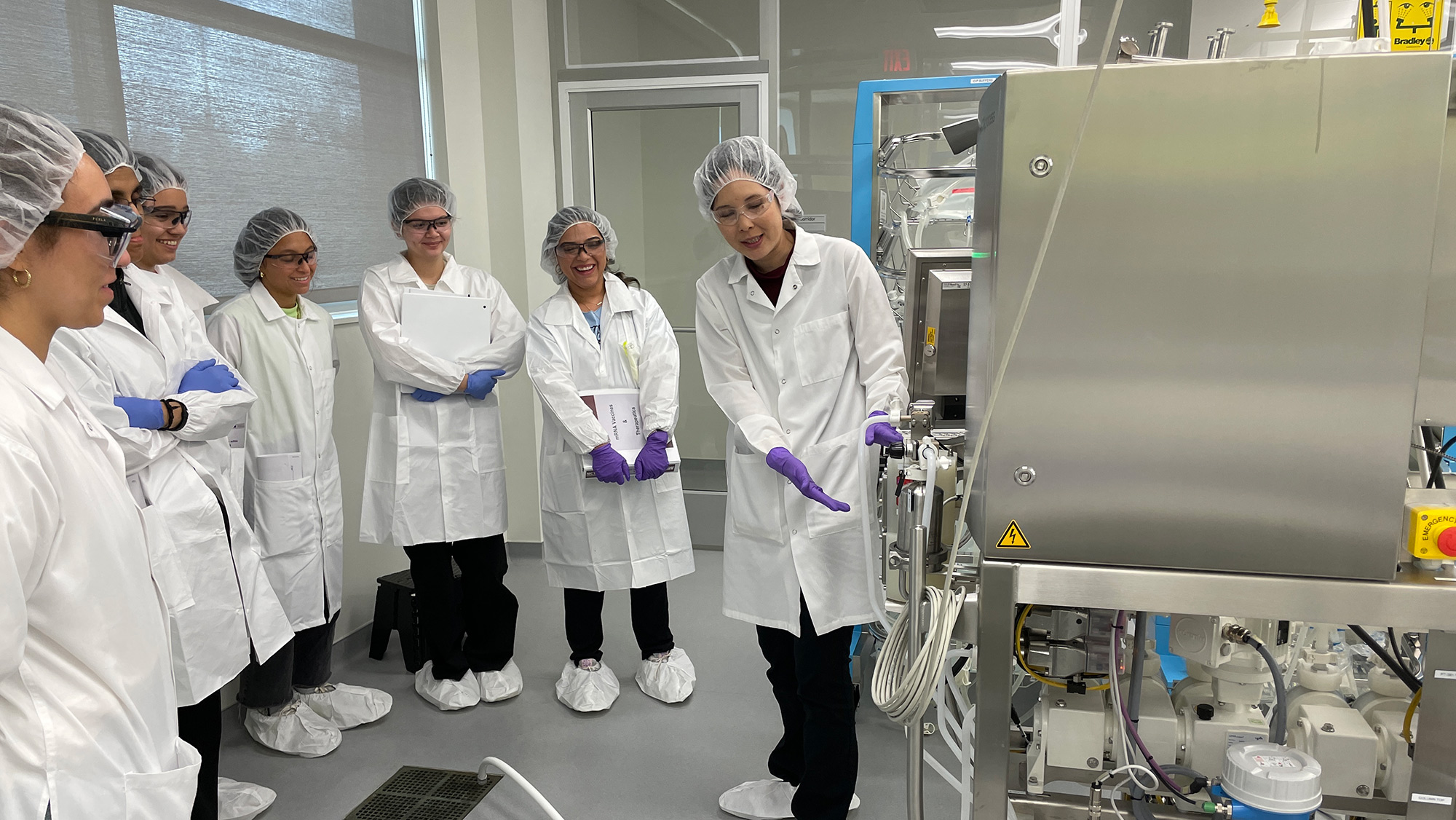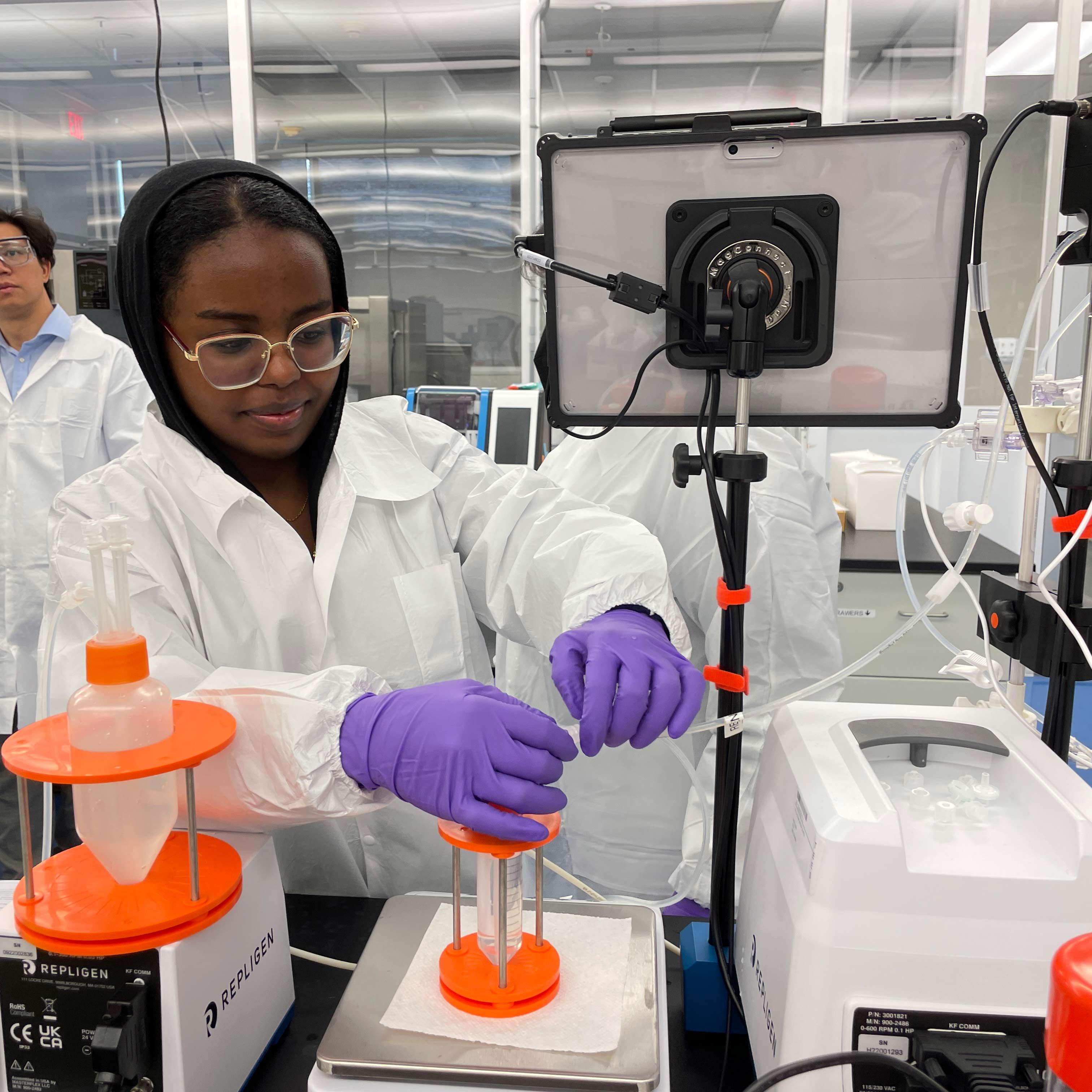
The biomanufacturing industry plays a critical role in the healthcare sector, as it is responsible for producing the United States vaccine supply and commercial drugs such as insulin, cancer therapeutics and gene therapies.
Part of Texas A&M University’s Engineering Experiment Station, the National Center for Therapeutics Manufacturing (NCTM) is the recipient of the National Science Foundation’s Experiential Learning for Emerging and Novel Technologies grant. The grant will help build an interdisciplinary workforce education program and research center that helps serve the global biomanufacturing industry.
The NCTM develops and delivers customizable instructor-led, hands-on learning courses to expose students to various aspects of the industry, helping educate students on topics such as vaccine and pharmaceutical production. Additionally, the center teaches and trains students in basic molecular biology, aseptic processing, upstream and downstream processing of biological materials, and industrial bioanalytical methods to support the manufacturing of a wide variety of products.
The grant will provide scholarships to students from minority-serving institutions nationwide, decreasing the barriers to employment in this industry by providing access to NCTM’s highly specialized training and through a mentorship program facilitated by NCTM. Ultimately, NCTM is working to train and retain diverse talent to feed into the biomanufacturing industry.
In addition to Texas A&M students, the program will also offer training to students from the University of Maryland, Baltimore County, Xavier University, Prairie View A&M, Lonestar College, Austin Community College, Colin College, Dallas College, Del Mar College, and Virginia State University.

“The NCTM was called upon during Operation Warp Speed to rapidly upskill trained workers to manufacture vaccines in response to the COVID-19 pandemic,” said Dr. Baley Reeves, Ddirector of the NCTM at Texas A&M. “While the pandemic is now behind us, the United States’ need for skilled workers in the biomanufacturing industry is still relevant. Training programs like NCTM’s will help support new talent entering the workforce, ultimately helping to support domestic manufacturing capabilities in this highly skilled industry.”
NCTM is one of only a handful of simulated Current Good Manufacturing Practice (cGMP) training facilities in the country, focused on training individuals to enter the biomanufacturing industry. The NCTM weaves aspects of the cGMP into their training, having students work on industry projects while following standard operating procedures and filling out batch production records.
The center is also a resource for faculty who can conduct research at larger scales using the NCTM’s bioprocess and industrial-scale equipment, furthering the scope of research possibilities. NCTM serves the TAMU community and beyond as a core facility and contract research center to help commercialize discoveries coming out of faculty laboratories, as well as supporting projects at startup companies.
Moving forward, Reeves hopes that the center will continue to grow and provide opportunities for students while propelling the industry forward.
“We hope the NCTM will be recognized as one of the premier biomanufacturing training centers in the United States,” said Reeves. “We also hope that our training programs will have a global impact, as we continue to support low- and middle-income countries build their vaccine manufacturing capabilities.”